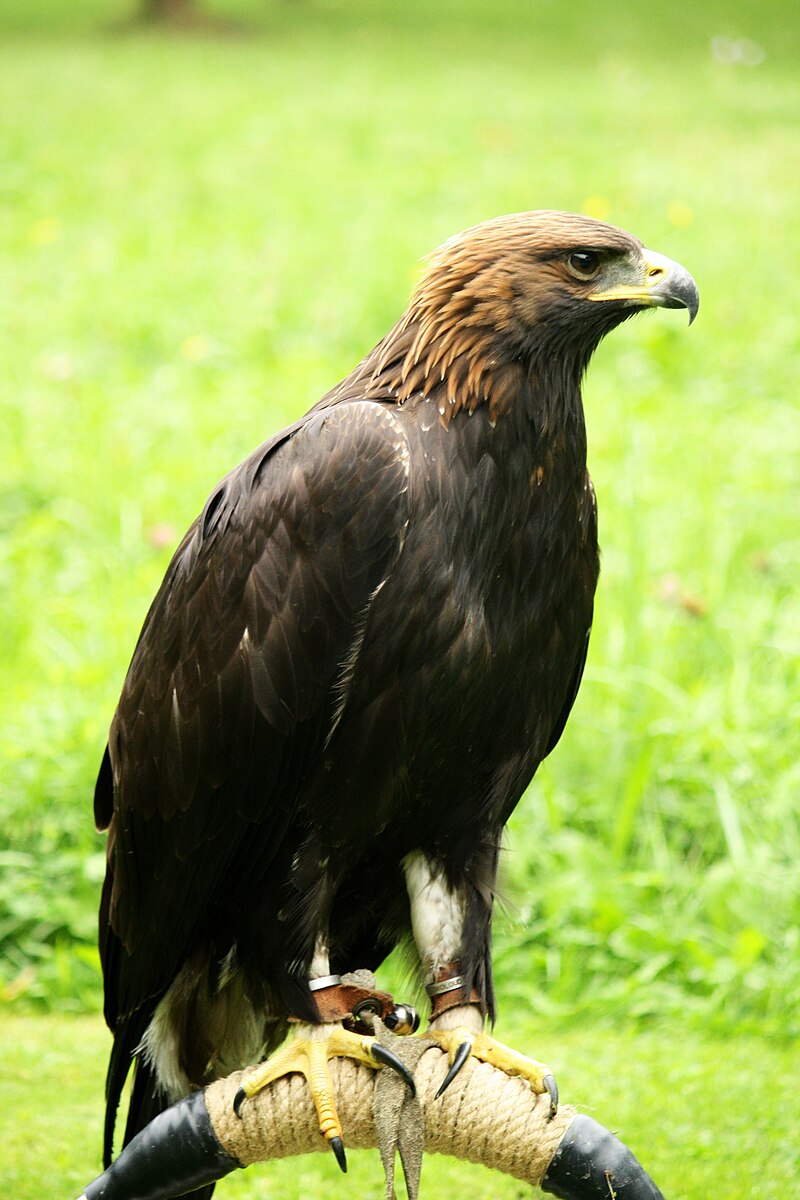Golden Eagles are majestic birds of prey known for their impressive size, strength, and hunting prowess. However, there is a common misconception that these magnificent creatures intentionally break their beaks as part of a natural process or ritual. This notion is, in fact, a myth that has been debunked by scientific research.
The Truth About Golden Eagles’ Beaks
Golden Eagles’ beaks, like those of other birds, are made of keratin, a tough protein that allows the beak to grow continuously throughout the eagle’s lifetime. This continuous growth is essential for the eagle to maintain a sharp, effective tool for tearing and ripping apart its prey.
Rather than intentionally breaking their beaks, Golden Eagles use a variety of natural behaviors to keep their beaks in good condition. These include:
-
Wiping their Beaks: Golden Eagles will frequently wipe their beaks against hard surfaces, such as rocks or tree branches, to remove any buildup of food or debris and to keep the beak sharp.
-
Tearing at Tough Foods: When hunting and feeding, Golden Eagles use their powerful beaks to tear apart the tough hides and flesh of their prey, which helps to maintain the beak’s sharpness.
-
Molting: Like other birds, Golden Eagles undergo a natural process called molting, where they shed and replace their feathers. This process does not involve the eagle intentionally breaking or removing its beak or talons.
The Myth of Beak Breaking
 Image source: Golden Eagle by Atillak
Image source: Golden Eagle by Atillak
The idea that Golden Eagles intentionally break their beaks as part of a natural process or ritual likely stems from a mythical story that has been debunked by scientific research. This myth may have originated from ancient folklore or misunderstandings about the eagle’s natural behaviors.
However, it is important to note that an eagle’s beak can become damaged or worn down over time due to the rigors of hunting and feeding. If an eagle’s beak becomes severely damaged, it may have difficulty hunting and feeding, which could ultimately lead to the eagle’s death.
The Importance of Beak and Talon Maintenance
Golden Eagles, like other birds of prey, rely on their sharp beaks and talons to hunt, kill, and tear apart their prey. These features are essential for the eagle’s survival and are not something that the bird would intentionally damage or remove.
In fact, the loss of a talon or the severe damage to a beak could be detrimental to an eagle’s ability to hunt and survive. Eagles do not pluck out their feathers or talons, as this would cause permanent damage and prevent them from flying, hunting, and escaping predators.
Conclusion
In summary, the idea that Golden Eagles intentionally break their beaks as part of a natural process or ritual is a myth that has been debunked by scientific research. Golden Eagles’ beaks grow continuously, and the birds use a variety of natural behaviors, such as wiping their beaks and tearing at tough foods, to maintain their beak’s sharpness and condition.
The loss or severe damage to an eagle’s beak or talons would be detrimental to the bird’s survival, as these features are essential for hunting, feeding, and escaping predators. By understanding the true nature of Golden Eagles’ beaks and the importance of their maintenance, we can better appreciate the remarkable adaptations and behaviors of these magnificent birds of prey.



